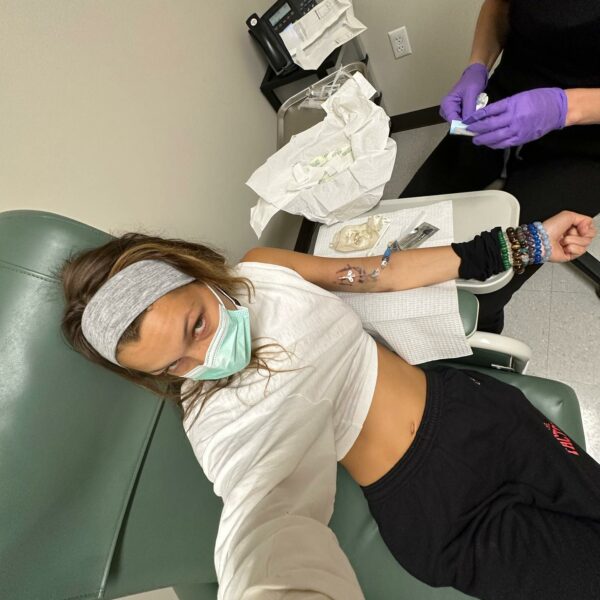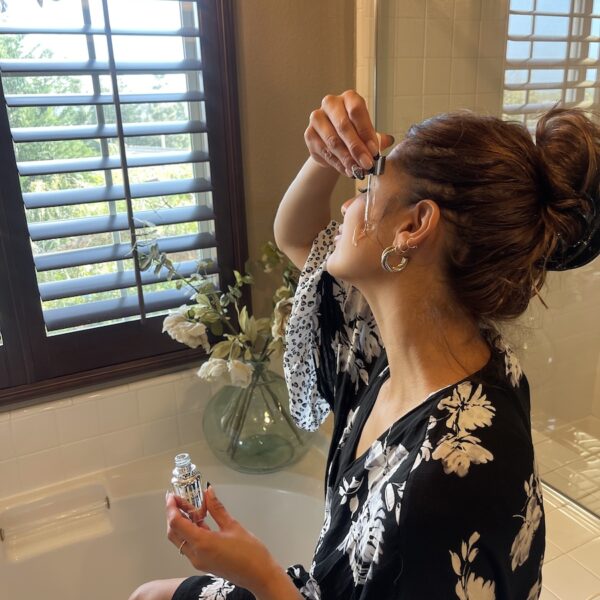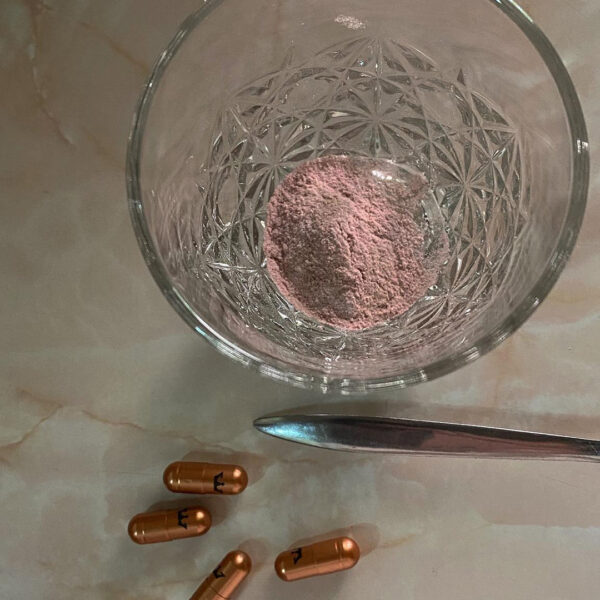Irregular periods can mean countless things. Sometimes it’s long-term irregularity, sometimes it’s shorter. Some women go long stretches without menstruating at all, others go through long stretches of bleeding. It can be very difficult to know when to be concerned for our health, when to hit the drugstore with a friend for a special test, or when to march ourselves straight to the gyno.
There are inevitable times in life when irregular periods are totally common. When we are first starting our periods as young girls, or when we are entering menopause, these new hormonal flows will absolutely disrupt our usual programming. But what about all those years in between?
First of all, stress can play a MAJOR role. There are studies that indicate acute stress can prevent women from ovulating, which will, in turn, delay a period. If anyone needs a refresher—that’s because ovulation is when the ovaries produce an egg and the uterus begins to prepare for pregnancy. If the egg is not fertilized, the lining of the uterus is shed, aka your period. When ovulation is delayed, so is the rest of the process.
Stress induces hormones like adrenaline and cortisol, so it’s no wonder these hormones can affect our already delicate female system. There are also studies that suggest the fight-or-flight mode has an effect on ovulation as well, as your body understands that a time of acute stress is not the right time to make a baby, or your body suppresses any other function that doesn’t have to do with you escaping imminent death (aka whatever is stressing you out).
While stress should be taken seriously, it is manageable and fluctuating. There are some other instances in which you may feel less in control. OB-GYN Dr. Nita Landry helped us cover a few of these bases.
“There are many reasons a period can become irregular. It could be a structural reason, like uterine fibroids or endometrial polyps,” Dr. Nita shares. What she means by structural, is that these are physical blockages disrupting your literal flow.
“Additional causes include, but are not limited to, infections, [seemingly unrelated] medical conditions, medication side effects, and starting or changing hormonal contraception. In some instances, irregular vaginal bleeding is a sign of a cancerous or precancerous condition.” But before you freak out about the big C, consider your stress levels, any other symptoms, and of course, your healthcare provider.
For many of us, it’s easy to jump to the conclusion that we are pregnant every time our period misses a scheduled beat. But give yourself room to breathe there, too, Dr. Nita calmly explains. “In the OB’s office, we typically rule out pregnancy when someone comes in with irregular bleeding.”
Another more deeply rooted issue could be an endocrine cause, such as polycystic ovarian syndrome, otherwise known as PCOS, says Dr. Nita. There are many routes for the management of such an issue, and it doesn’t have to rule your life. Treatments range from herbs and a structured diet geared toward regulating your hormones, to a medical plan from your doctor of regimented medication.
Dr. Nita tells us, “To figure out the best treatment for you, you need to see a healthcare provider to determine the reason for your irregular periods. The reason will determine the best treatment option, and in a lot of cases, females can use hormonal contraception to successfully help regulate their menstrual cycle.”
We know many of our readers would prefer to take a more natural route, and Dr. Nita knows this. “If you don’t wish to use hormones, there are other non-hormonal treatment options available.” Dr. Nita’s final wish? Please don’t self-diagnose yourself on the internet and give yourself more unnecessary stress, and remember that there are tons of dynamic treatment options.
The content provided in this article is provided for information purposes only and is not a substitute for professional advice and consultation, including professional medical advice and consultation; it is provided with the understanding that Poosh, LLC (“Poosh”) is not engaged in the provision or rendering of medical advice or services. The opinions and content included in the article are the views of the interviewee only, and Poosh does not endorse or recommend any such content or information, or any product or service mentioned in the article. You understand and agree that Poosh shall not be liable for any claim, loss, or damage arising out of the use of, or reliance upon any content or information in the article.




































